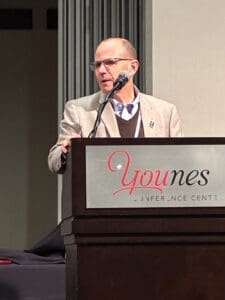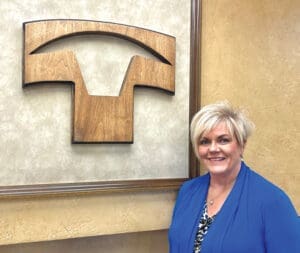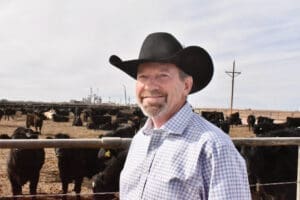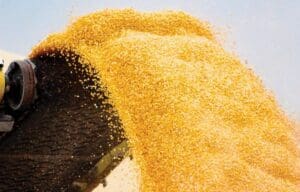By Patti Wilson Contributing Editor
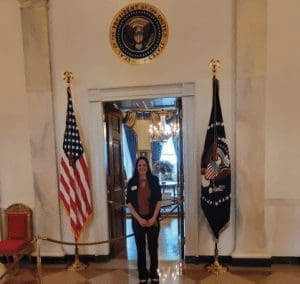
CALF News National Accounts Manager Jess Ebert of Tescott, Kan., is a newly hatched graduate of the Kansas Agriculture and Rural Leadership (KARL) program. She courageously stepped up and applied for the two-year program, citing a desire to be of greater value to her community and the beef industry. She specifically noted a wish for service or leadership roles in the Kansas Livestock Association (KLA) and National Cattlemen’s Beef Association (NCBA). For now, she knows she “cannot do it all,” and may begin in her home county, with work in the Ottawa County Community Foundation. Jess is married to Levi, their ranch runs near Jess’s family operation. They are the fourth generation to farm or ranch in Ottawa County. The couple has been back home at Tescott since 2010.
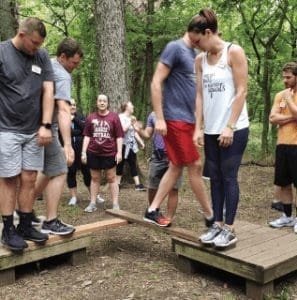
They are in charge of the family’s cow-calf operation and a 250-head herd of Spanish brush goats. Additionally, she and Levi run a reproductive service for area cattle producers. As if that’s not work enough, Levi sells Stay Tuff Fencing and Jess is the advertising director for KFRM Radio. The couple has two children – Ty, 11, and Mason, 7.
What is KARL?
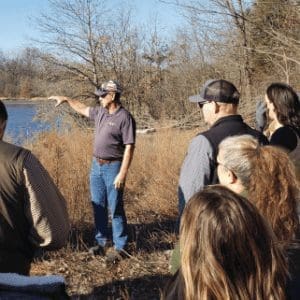
“The purpose of KARL is to take a group of thought leaders who are already committed to their purpose, be it agriculture, rural communities or the general needs of Kansas, and provide them a learning experience through which they create a bond that allows them to be change-makers,” says KARL President Jill Zimmerman.
“Leaders need to be life-long learners.” The program was started in 1989. It’s an intensive commitment that includes classes and trips to destinations of economic and political importance in Kansas and Washington, D.C. The program culminates with an extended excursion to a foreign destination; Ebert’s group spent 10 days in the United Arab Emirates (UAE) at the end of March. To apply for a spot in KARL, one must be a citizen of the U.S. and Kansas, and have approval from your employer or prove you can handle the time requirements if you are self-employed. One does not need to be vested in production agriculture to participate, but all students are somehow tied to or affected by ag. Bankers, Extension educators and rural community leaders are good examples. All of Kansas is equally represented in the class, and the classes contain a maximum of 30 students. An ag community leadership position is required on the application in order to be accepted. This ensures only the brightest and most serious will apply. Tuition of $5,000 is often picked up, in part or whole, by sponsors.
What Do They Do?
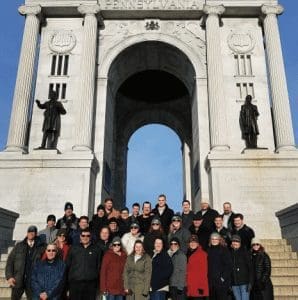
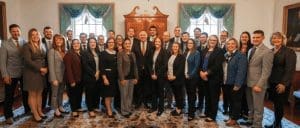
One does not stay home for very long when enrolled in KARL. Initially, Ebert’s group met for two and a half days each month at Kansas State University in Manhattan. This is when they melded into a team and laid a foundation for later travels.
The following year, real, hard-core work began as the class experienced education away from home. They met with American Farm Bureau President Zippy Duvall, Kansas Attorney General Derek Schmidt, and Kansas Secretary of Commerce David Toland. They also toured an FBI lab and visited Fort Leavenworth and the Leavenworth Prison. Politics and environmental issues were on the table, as well. Ebert says they were given an opportunity to learn about more than agriculture; being equipped with a broad base of knowledge is most helpful in serving one’s community.
A later trip took Ebert and her class to Washington, D.C., to meet their congressmen as well as visited the U.S. Department of Agriculture and several other agencies. A highlight of the eastern trip was a stop at Gettysburg. There they were given further instruction on leadership at the national historic site. Further domestic study was done in Kansas, including a stop in Wichita to learn about global leadership and Hays to learn about energy, water and natural resources.
After more than a year with a steep domestic learning curve, the KARL group was ready in March to head to the UAE.

